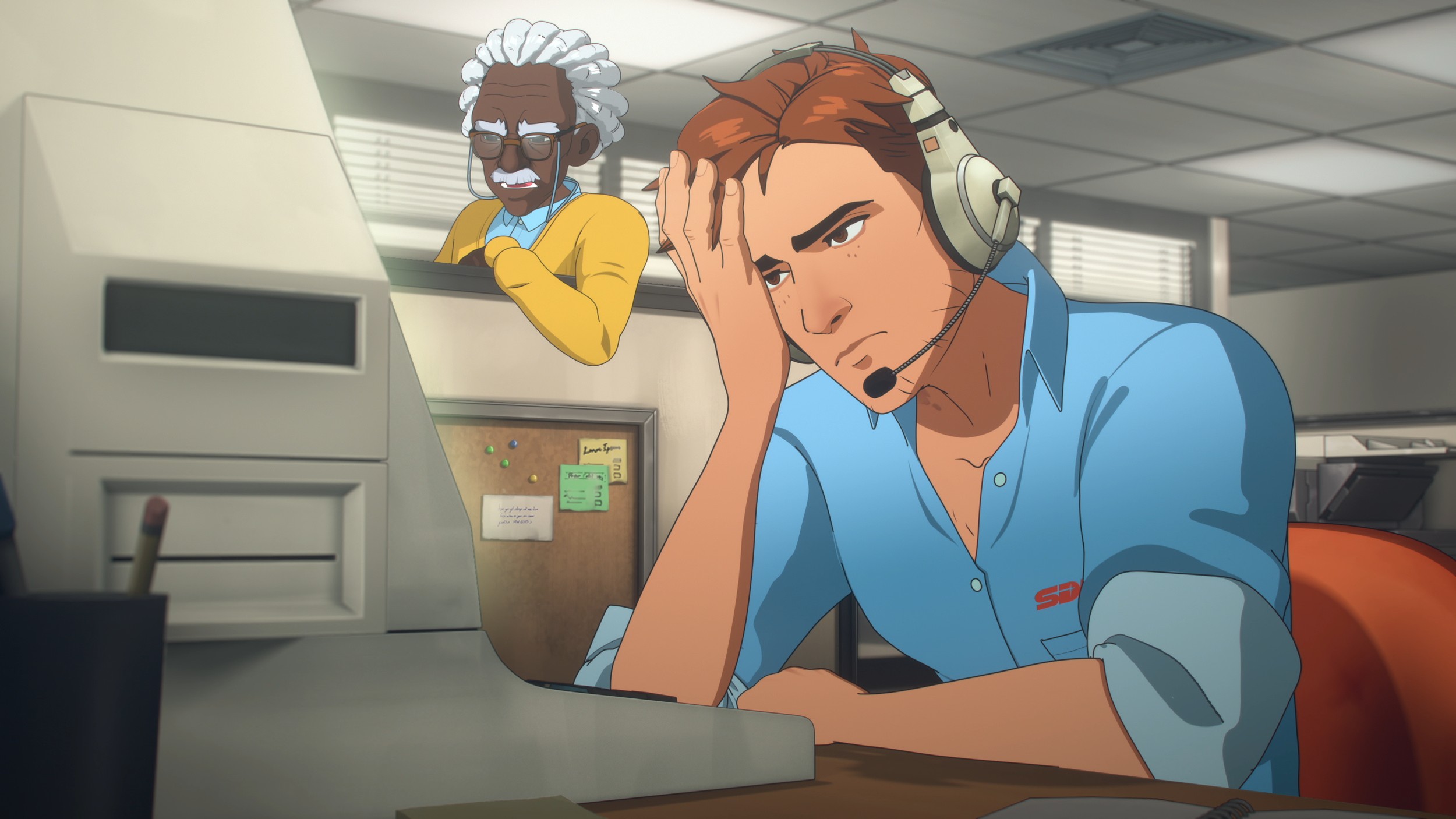The Shacknews staff was aware of AdHoc Studio, a team comprised of former developers from Telltale Games, Ubisoft, Night School Studio, and others. Still, *Dispatch* is a game that caught most of us by surprise.
With a release calendar filled with heavy AAA hitters and indie darlings, AdHoc’s debut almost slipped under our radar. It took Donovan Erskine jumping into Slack one day and asking if anybody else on staff had played it for the rest of us to start to take notice. Well, it took him a few tries. By the third time he asked, I finally said, “You know what? Enough people are talking about it, why not? Let’s give it a shot.”
There were many reasons why I’m glad I did, chief among them being that catching up with *Dispatch* hardly took any time at all. That’s a big difference from many of its companions and, honestly, should be the model for these types of stories going forward.
I went into *Dispatch* fairly cold, having only seen some promotional images. I was almost instantly dazzled by its polished animation style, one that looks like it would be at home on YouTube or the average streaming service. It looked like standard Telltale fare, but set in a world of superheroes.
After a lengthy cold open sequence, the story’s focus turned to Robert Robertson living his post-superhero life and eventually being recruited to act as a dispatcher to reformed supervillains. The introduction, the press conference scene, the subsequent bar scene, the meeting with Blonde Blazer, and its aftermath are all sequences I expected would take a lot of time to get through. Instead, when the credits started rolling on the first episode, I looked at my phone and saw that only an hour had passed.
I felt like I had gotten a full story experience, some satisfying gameplay sequences, and enough of a tease for what’s next — all in a matter of minutes.
Part of that efficiency can be attributed to AdHoc cutting one of the most time-consuming aspects of these games: the exploration. There’s no time spent walking around exploring Robert’s apartment, the dispatch headquarters, the bar, crime scenes, or anything else.
In the past, I was one of those people who would explore these areas thoroughly—checking every corner, talking to every NPC, interacting with every object. That could easily take 10 or 20 minutes. Even when Telltale was at the top of its game with classics like *The Walking Dead*, *The Wolf Among Us*, and *Tales from the Borderlands*, these exploration sections often ground the story to a halt. It was where these games dragged, sometimes for tens of minutes before the story would continue.
*Dispatch* doesn’t do that. There are no exploration sections at all, so the story keeps flowing seamlessly.
Instead, *Dispatch*’s gameplay revolves around the titular dispatch system—sending out individual heroes or teams from the available roster to citizens in need. It’s a system that flows elegantly and incorporates both story elements and additional gameplay ideas, such as hacking mini-games. These sections last just long enough to set the table for the next part of the story and no longer.
There are fair questions about how much the dispatch success rate really matters, but that’s a conversation for the full review.
Cutting out tedious exploration and refining the gameplay elements of a Telltale-style game is a major positive for *Dispatch*. It allows AdHoc to tell its story in a more streamlined way, trimming the overall runtime without compromising any narrative satisfaction.
There are still big choices to be made, there are still gameplay sections, and there are still those watercooler moments that made the best Telltale games such classics. Now, they’re executed in such a way that two episodes can be played in a single night.
It’s a big change from later Telltale games or modern Telltale-style games. I’m someone who loves and swears by the *Life is Strange* series, but there’s something about it shifting to full $50 self-contained stories that makes their newer efforts feel a little bloated.
All apologies to Max Caulfield, but that runtime doesn’t have me rushing back to catch up—not when there are so many other games to play. Add *Dispatch*’s weekly release schedule to the mix, and it’s fair to say that AdHoc is acutely aware of the current gaming climate.
There are so many games out there—many excellent ones like *Clair Obscur: Expedition 33*, *Hades 2*, *Hollow Knight: Silksong*—that demand dozens upon dozens of hours. There are only so many hours in the day, so it feels like a major plus that a game like *Dispatch* can tell its story in a satisfying way and get everyone on their way in just a few hours.
It knows what it wants to be, gets in, gets out, and ideally makes everyone happy. So far, everything is great.
The final episodes are set to release next week, and I’ve carved out the exact time to play them. Even if they don’t necessarily live up to my expectations, I can appreciate that *Dispatch* respects my busy life—and I hope other games like it will follow suit in the future.
https://www.shacknews.com/article/146700/dispatch-episodic-format-time-short-sessions
